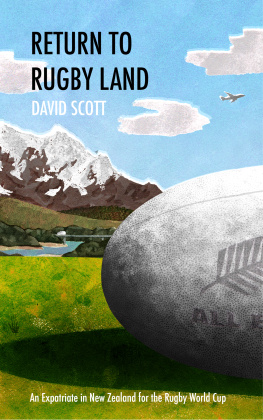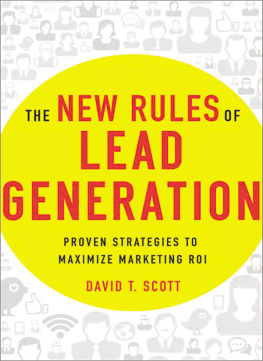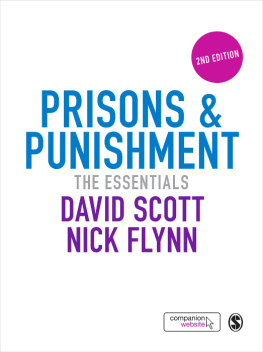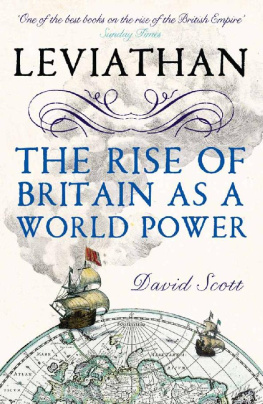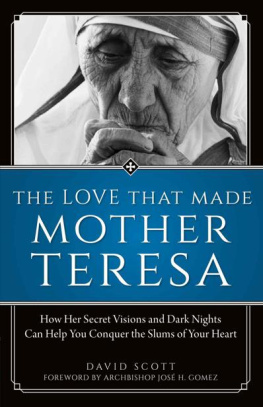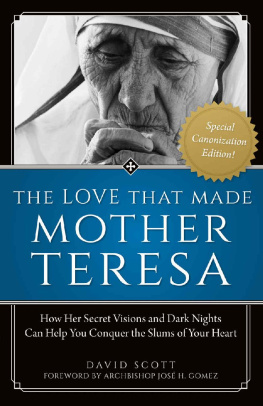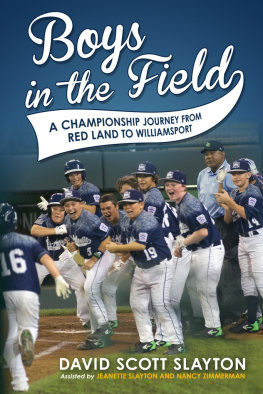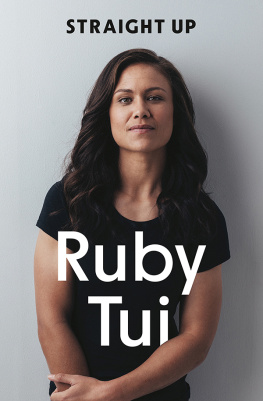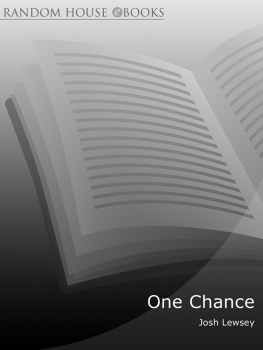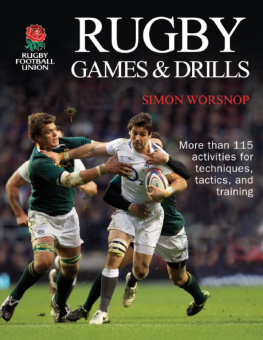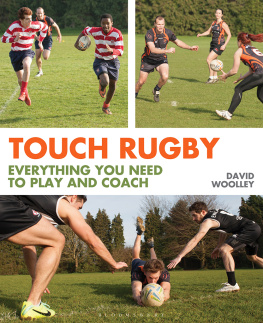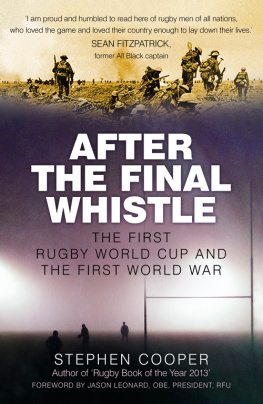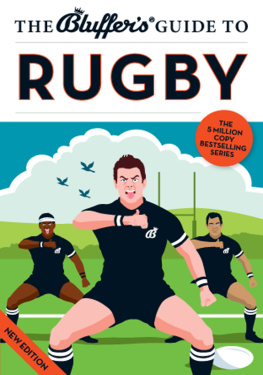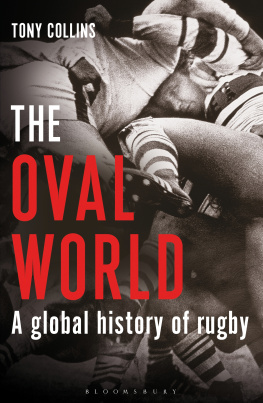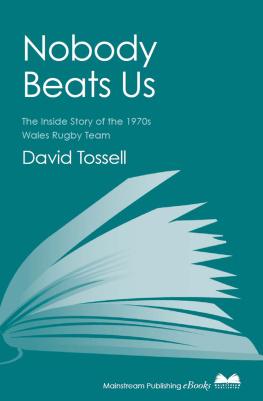David Scott - Return to Rugby Land
Here you can read online David Scott - Return to Rugby Land full text of the book (entire story) in english for free. Download pdf and epub, get meaning, cover and reviews about this ebook. year: 2015, publisher: Lightwood Books, genre: Politics. Description of the work, (preface) as well as reviews are available. Best literature library LitArk.com created for fans of good reading and offers a wide selection of genres:
Romance novel
Science fiction
Adventure
Detective
Science
History
Home and family
Prose
Art
Politics
Computer
Non-fiction
Religion
Business
Children
Humor
Choose a favorite category and find really read worthwhile books. Enjoy immersion in the world of imagination, feel the emotions of the characters or learn something new for yourself, make an fascinating discovery.
- Book:Return to Rugby Land
- Author:
- Publisher:Lightwood Books
- Genre:
- Year:2015
- Rating:5 / 5
- Favourites:Add to favourites
- Your mark:
- 100
- 1
- 2
- 3
- 4
- 5
Return to Rugby Land: summary, description and annotation
We offer to read an annotation, description, summary or preface (depends on what the author of the book "Return to Rugby Land" wrote himself). If you haven't found the necessary information about the book — write in the comments, we will try to find it.
Return to Rugby Land — read online for free the complete book (whole text) full work
Below is the text of the book, divided by pages. System saving the place of the last page read, allows you to conveniently read the book "Return to Rugby Land" online for free, without having to search again every time where you left off. Put a bookmark, and you can go to the page where you finished reading at any time.
Font size:
Interval:
Bookmark:

Return to Rugby Land
An Expatriate in New Zealand
for the Rugby World Cup
David Scott

First published in Great Britain by Lightwood Books 2015
Copyright David Scott 2015, 2017
David Scott has asserted his moral right to be identified as the author in accordance with the Copyright, Designs and Patents Act 1988.
All rights reserved. No part of this publication may be reproduced in any form or by any means without the written permission of the author.
ISBN: 978-0-9573952-2-0
Cover art by Patrick Atkins.
Editing by Sandy Meredith and Jim Benfield.
www.lightwoodbooks.com
Email: admin@lightwoodbooks.com
Glossary
Aotearoa Maori name for New Zealand
bach small, modest holiday home
haka war dance, action song, challenge
hangi earthen oven over embers and stones, Maori feast
hapu sub-tribe
harakeke flax
hui assembly, gathering, meeting
iwi tribe
kohanga reo schools (nests) for Maori language and culture
korero talk, speech, story
kumara Polynesian sweet potato, traditional stable food
kupapa Maori who fought with the British in the New Zealand Wars
mana authority, prestige, honour, spiritual quality of person
manuka common native shrub, tea tree
marae ground in front of meeting house, village meeting complex
Maui mythical hero in Maori folklore
nga, ngai, ngati tribal prefix
OE overseas experience
pa originally fortification, now sometimes village
Pakeha non-Maori, white New Zealander, usually not pejorative
patu war club, also beat, defeat
paua abalone, distinctive green and blue shell
pounamu greenstone, jade
rangatira chief
raupo bulrush
section house block
taiaha long staff-like weapon of hard wood
tangi funeral, mourning
taniwha awe-inspiring, even frightening, water spirit
tapu sacred, forbidden, unclean, taboo
te reo the language
tohunga priest, shaman, expert
tupara double-barrelled shotgun
utu payment, compensation, revenge
waka canoe
whakapapa genealogy, family chronicle
whakapohane derisive showing of the buttocks
whare house, dwelling
Allow me to introduce myself
I was born in Oamaru, New Zealand in 1949, a few days before Mao Zedongs Chinese Communist armies swept into Beijing and the same year that Freddie Allens All Blacks lost 40 in South Africa. I grew up in Blenheim, before there was any Marlborough wine.
In primary school I tried to play softball because some of my pals were going for it. My father put a stop to that, so in summer I played cricket, where an ephemeral local fame came as a member of a Marlborough under-13 cricket team that won the South Island championship. At college I eventually made it into the first eleven, and after leaving school played senior grade cricket for the Wairau Valley club. Until I was a teenager, when everybody else started shooting up and shaving while I remained a pipsqueak, I made my Marlborough age group rugby team more seasons than I didnt. That might not seem impressive as Marlborough was one of the weakest unions in the country: the combined team with Nelson lost 645 to the 1959 Lions. But it was also the gestation period of Marlboroughs best sporting years. A Marlborough rugby team of roughly my age peers, the likes of Alan and Ray Sutherland, David and Ross Neal, Jim Joseph and Brian Ford, would beat the French tourists in 1968 and win the Ranfurly Shield in 1973. Gary Bartlett was bowling very fast and Lance Cairns was emerging as an outstanding cricketer.
At Victoria University in Wellington I played in various lower grades, and began to work my way to more serious stuff. Many of us went to the pub after training. Some of us went to anti-South Africa rugby tour protests. I marched through the night to Wellington airport after the battle of Willis Street in 1970 and played rugby that afternoon. The Auckland Weekly News had a picture of me about to be hauled out of the demonstration at the airport. A more senior officer told the policemen who had collared me to toss me back in. Some good liberal who may or may not have played rugby had the idea that rugby players against the tour should wear a black band on their arms, which I dutifully and painfully did.
It wasnt disgust at rugby contacts with South Africa that stopped me playing rugby, but rather travel, involvement as a political activist and other siren calls of the late sixties and early seventies. Kitted out with my red corduroy flairs and army surplus greatcoat I moved to Melbourne, Australia in 1972 to pursue a postgraduate degree, but soon abandoned my stuttering academic career for revolutionary politics. There is a saying that if you remember the sixties you werent there. Thats nonsense, a handy depoliticized version of history which depicts the period as just hippies, sex, drugs and rock and roll. These were the years of the Vietnam War, the American Civil Rights movement, Paris 1968, womens liberation protests and other struggles. For the next 25 years or so as well as working full-time for the party organization as a writer, organizer and public speaker, I had jobs on a car assembly line, as a cleaner in a sugar refinery, taking bets on race tracks, bottling wine and later and more long term in the City of London as a qualified by experience accountant. I dont regret my choices but I sometimes wish Id played more rugby, if only to find and know my limit. This book may confirm that you can take the boy out of rugby but you cant take rugby out of the boy.
In 1999 my brother Jim and I were talking about getting tickets for the Rugby World Cup (RWC) when he suggested that I go as a reporter for a small Wellington weekly magazine with which he was associated. Thus began my sports journalist career. In War Without the Shooting, his account of the 1996 Cricket World Cup in South Asia, Mike Marqusee describes himself as having the most motley set of press credentials. Mine were not much better. I took the work seriously but it was more hobby than second, let alone burgeoning, career. I kept the day job as an operational risk specialist in a major American investment bank.
I covered the Six Nations Tournament and All Black November Europe tours. For the 2007 RWC I managed, through my mothers contacts in Blenheim, to get some work reporting for the Marlborough Express. I had a grand time going to the All Black matches across France. If you like rugby, cafs and cuisine, France in autumn with its high-speed railways is a great place for a rugby tournament. After we moved to Sri Lanka in 2008, I wrote about the New Zealand Black Caps visits and the Cricket World Cup in early 2011. The idea of returning to New Zealand for the 2011 RWC germinated. I began reading books about New Zealand and sport that I had collected but often not read. I followed New Zealand news websites. I booked plane tickets and accommodation. Press credentials were a major concern. Though their sports editor, Pete Jones, was prepared to back my application, the Marlborough Express had its own people as well as reporters from its Fairfax organization. Fearful of being way down the pecking order, I bought tickets for a number of games, but my credentials came through. I got work for the Sri Lankan Daily Mirror, the countrys largest paid circulation English language paper. This is not as motley as it might sound. According to 2008 figures, Sri Lanka has 103,325 registered rugby players, seventh in the world, after Japan with 122,598, and New Zealand at fifth with 137,835. They have lively school and club competitions. I would have readership. All the match reports in this book were written for the
Font size:
Interval:
Bookmark:
Similar books «Return to Rugby Land»
Look at similar books to Return to Rugby Land. We have selected literature similar in name and meaning in the hope of providing readers with more options to find new, interesting, not yet read works.
Discussion, reviews of the book Return to Rugby Land and just readers' own opinions. Leave your comments, write what you think about the work, its meaning or the main characters. Specify what exactly you liked and what you didn't like, and why you think so.

